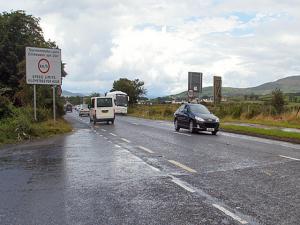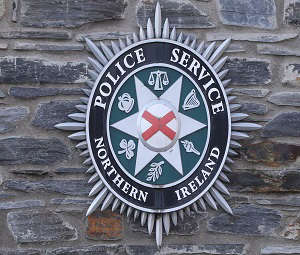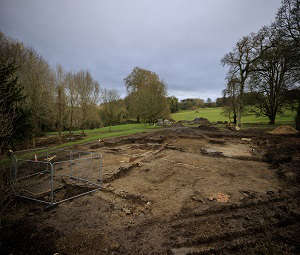
By PA reporter
The British Government will not have time to introduce invisible customs arrangements on the Irish border before Brexit, an influential group of MPs warned.
Withdrawal is due in just over a year and the Northern Ireland Affairs Committee said the UK may need to remain in or parallel to the Customs Union and Single Market throughout the two-year transition period.
Parliamentarians urged Government to do more to clarify the rules, processes and technical measures that will allow the current frictionless North/South arrangements to continue.
They said ministers should develop an innovative system capable of delivering customs compliance without "ineffective and unworkable" physical infrastructure.
The committee inquiry failed to find a technical solution capable of avoiding a hard border anywhere else in the world. Foreign Secretary Boris Johnson had suggested crossings of the frontier could be monitored by technology like travel between London boroughs.
Committee chairman Dr Andrew Murrison said: "It is now clear that a significant transition period is essential for the options in December's Joint Report (EU-UK) to be worked though.
The SDLP's Brexit Spokesperson Claire Hanna has told Q Radio it's significant the committee's struggling to find a technical solution to the problem.
"It is equally clear that regulatory and tariff alignment will be required during transition to avoid any hardening of the border before a definitive low-friction solution can be determined."
The committee report, representing Conservatives, Democratic Unionists and Labour, said the negotiating timeline made it "challenging" to expect full implementation of a new non-visible customs regime by March next year.
It added: "We have seen no evidence to suggest that, right now, an invisible border is possible."
The Committee heard "numerous" proposals for how the UK and the EU could ensure customs compliance without physical infrastructure, including mobile patrols, data sharing and enforcement measures away from the border.
"However, we have had no visibility of any technical solutions, anywhere in the world, beyond the aspirational, that would remove the need for physical infrastructure at the border.
"We recommend the Government bring forward detailed proposals, without further delay, that set out how it will maintain an open and invisible border.
"These proposals should provide detail about how customs compliance will be enforced if there is regulatory and tariff divergence between the UK and Ireland."
It said Government should conduct an impact assessment for the Irish border each time regulatory or tariff divergence from the EU was proposed and regulatory exemptions may be sought.
The report rejected any proposals for a customs border between Northern Ireland and the rest of the UK.
"This would create a costly barrier to trade with Northern Ireland's largest market and would be incompatible with the spirit and intent of the Belfast/Good Friday Agreement."
It also found:
- Leaving the EU without a substantial agreement would have very negative consequences for avoiding a hard border.
- The Government should set out in detail how it proposes to manage immigration through internal controls, including whether there will be increased documentary checks to determine entitlement for residency and to access public services.
- Ministers should clarify how the Common Travel Area (CTA) protects the special status of British and Irish citizens in each other's countries and potentially create new legal safeguards.
- The Government should detail its proposals for cross-border projects such as the Peace programme which supports community development.


 13 year boy dies following quad bike crash near Newry
13 year boy dies following quad bike crash near Newry
 Man appears in court charged over head-on collision which killed father and son
Man appears in court charged over head-on collision which killed father and son
 Remains of 300-year-old building complex unearthed by chance on country estate
Remains of 300-year-old building complex unearthed by chance on country estate
 Fresh Met Office warning for icy conditions across Northern Ireland
Fresh Met Office warning for icy conditions across Northern Ireland
 Community still in shock over deaths of father and son, funeral told
Community still in shock over deaths of father and son, funeral told